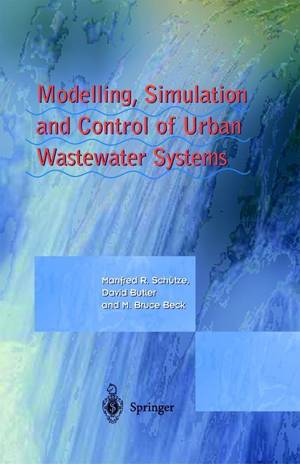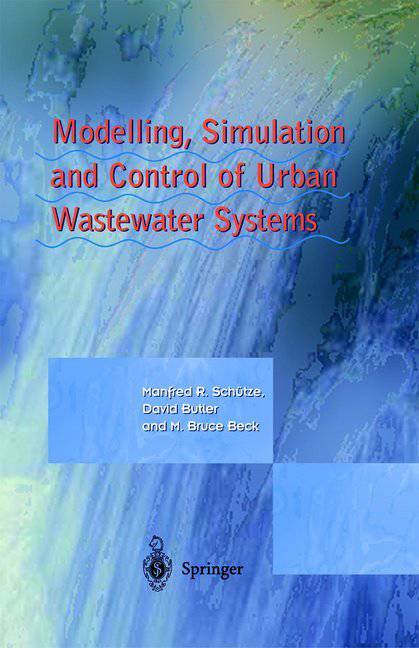
- Afhalen na 1 uur in een winkel met voorraad
- Gratis thuislevering in België vanaf € 30
- Ruim aanbod met 7 miljoen producten
- Afhalen na 1 uur in een winkel met voorraad
- Gratis thuislevering in België vanaf € 30
- Ruim aanbod met 7 miljoen producten
Zoeken
Modelling, Simulation and Control of Urban Wastewater Systems
Manfred Schütze, David Butler, Bruce M Beck
Paperback | Engels
€ 167,95
+ 335 punten
Uitvoering
Omschrijving
by Professor Poul Harremoes Environmental engineering has been a discipline dominated by empirical approaches to engineering. Historically speaking, the development of urban drainage structures was very successful on the basis of pure empiricism. Just think of the impressive structures built by the Romans long before the discipline of hydraulics came into being. The fact is that the Romans did not know much about the theories of hydraulics, which were discovered as late as the mid-1800s. However, with the Renaissance came a new era. Astronomy (Galileos) and basic physics (Newton) started the scientific revolution and in the mid-1800s Navier and Stokes developed the application of Newtons laws to hydrodynamics, and later, St. Venant the first basic physics description of the motion of water in open channels. The combination of basic physical understanding of the phenomena involved in the flow of water in pipes and the experience gained by "trial and error", the engineering approach to urban drainage improved the design and performance of the engineering drainage infrastructure. However, due to the mathematical complications of the basic equations, solutions were available only to quite simple cases of practical significance until the introduction of new principles of calculation made possible by computers and their ability to crunch numbers. Now even intricate hydraulic phenomena can be simulated with a reasonable degree of confidence that the simulations are in agreement with performance in practice, if the models are adequately calibrated with sample performance data.
Specificaties
Betrokkenen
- Auteur(s):
- Uitgeverij:
Inhoud
- Aantal bladzijden:
- 362
- Taal:
- Engels
Eigenschappen
- Productcode (EAN):
- 9781447111054
- Verschijningsdatum:
- 1/09/2012
- Uitvoering:
- Paperback
- Formaat:
- Trade paperback (VS)
- Afmetingen:
- 156 mm x 234 mm
- Gewicht:
- 535 g

Alleen bij Standaard Boekhandel
+ 335 punten op je klantenkaart van Standaard Boekhandel
Beoordelingen
We publiceren alleen reviews die voldoen aan de voorwaarden voor reviews. Bekijk onze voorwaarden voor reviews.











